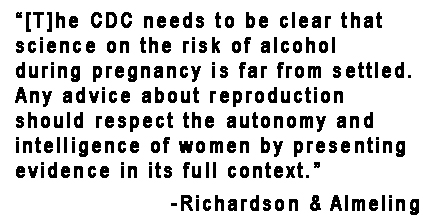Make Oceania Great Again – Trump Administration Bans Seven Words from CDC Budget
Science, in the old sense, has almost ceased to exist. In Newspeak there is no word for ‘Science’. The empirical method of thought, on which all the scientific achievements of the past were founded, is opposed to the most fundamental principles of Ingsoc.
-George Orwell, 1984
Late in the day Friday, the Washington Post reported on the Trump Administration’s latest attempt to “make Oceania great again:” a list of seven words and phrases that the CDC is not allowed to use in any official documents being created for the next year’s budget. These words are:
- fetus;
- diversity;
- vulnerable;
- entitlement;
- transgender;
- science-based;
- evidence-based.
Oh. Is that all? I mean, we wouldn’t want the Centers for Disease Control and Prevention having anything their budget about evidence-based or science-based medicine, right? Heaven forbid, who knows where that could lead? Do you study vulnerable medical populations? Apparently not according to the CDC. Are you transgender? Nothing for your health in the budget – you can’t be mentioned, you see.
Oh sure, some people will say that this merely means that the CDC must be “creative” when writing their budget request, but as Emily Nagoski noted on Twitter this morning, similar biases and bans were faced by the gay community – researchers had to say “same sex” instead of “homosexual” in order to have a chance of securing funding. No one thought that was right; it colored funding requests and constrained research.
This is much worse.
 A spokesman for the Department of Health and Human Services, speaking to STAT News on Saturday, tried to downplay the already vocal pushback on the ban. Of course, if you actually read what he said,… “The assertion that HHS has ‘banned words’ is a complete mischaracterization of discussions regarding the budget formulation process,” [Matt] Lloyd, from HHS, said in a statement to STAT. “HHS will continue to use the best scientific evidence available to improve the health of all Americans. HHS also strongly encourages the use of outcome and evidence data in program evaluations and budget decisions.”
A spokesman for the Department of Health and Human Services, speaking to STAT News on Saturday, tried to downplay the already vocal pushback on the ban. Of course, if you actually read what he said,… “The assertion that HHS has ‘banned words’ is a complete mischaracterization of discussions regarding the budget formulation process,” [Matt] Lloyd, from HHS, said in a statement to STAT. “HHS will continue to use the best scientific evidence available to improve the health of all Americans. HHS also strongly encourages the use of outcome and evidence data in program evaluations and budget decisions.”
Not only Lloyd he not deny that there was a banned word list, but he himself did not actually say two of the banned phrases, instead talking around them. Lloyd could have easily said “HHS will continue to use the best science-based evidence available…” or to say that “HHS strongly encourages the use of evidence-based data…” And yet.
The words we use drive funding, manage expectations, even constrain who we think about and include. This ban is nothing more than an assault on reproductive rights, equality, and quite literally, diversity.
MOGA.






 First, the CDC needs to be clear that science on the risk of alcohol during pregnancy is far from settled. Any advice about reproduction should respect the autonomy and intelligence of women by presenting evidence in its full context. Public health officials should provide perspective about the size of the effects relative to other common risk factors. And they should be straightforward in describing the evidentiary base for health advisories.
First, the CDC needs to be clear that science on the risk of alcohol during pregnancy is far from settled. Any advice about reproduction should respect the autonomy and intelligence of women by presenting evidence in its full context. Public health officials should provide perspective about the size of the effects relative to other common risk factors. And they should be straightforward in describing the evidentiary base for health advisories. On the surface, the One Key Question Initiative, by the Oregon Foundation for Reproductive Health, may seem like a good idea. Many women have access to a primary care provider, but do not see OB-GYNs with any regularity. And of course, discussing reproductive and contraception options with a patient should be a basic of yearly, preventive, or wellness exams. The problem is not in discussing reproductive and contraception options, but instead in the framing of the question: would you like to become pregnant in the next year?
On the surface, the One Key Question Initiative, by the Oregon Foundation for Reproductive Health, may seem like a good idea. Many women have access to a primary care provider, but do not see OB-GYNs with any regularity. And of course, discussing reproductive and contraception options with a patient should be a basic of yearly, preventive, or wellness exams. The problem is not in discussing reproductive and contraception options, but instead in the framing of the question: would you like to become pregnant in the next year?